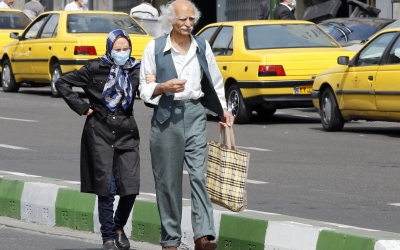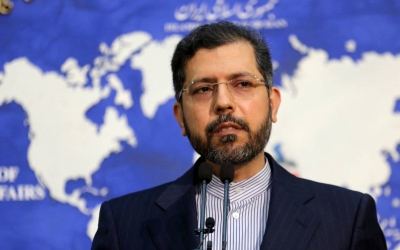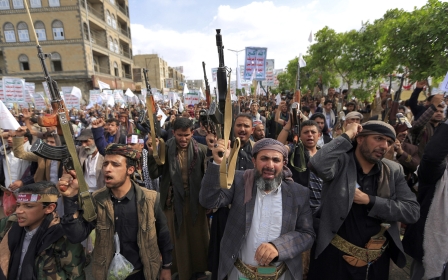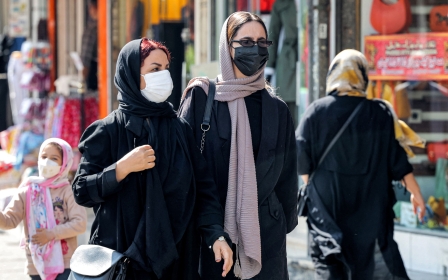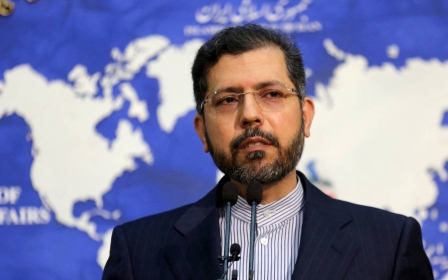Iranian press review: Married couple sentenced to death for extramarital sex
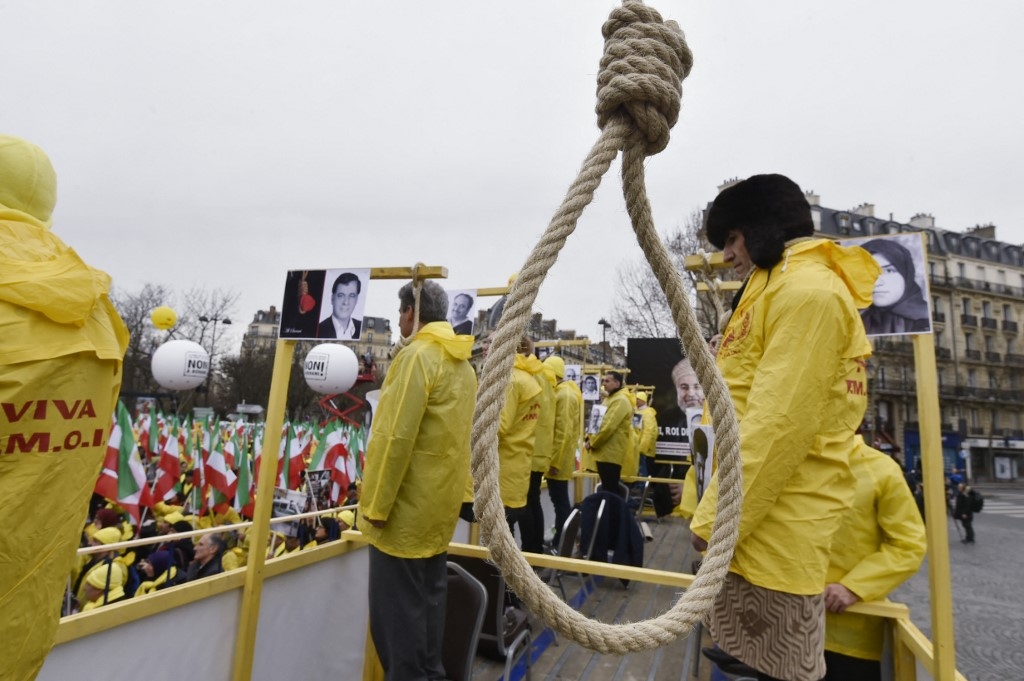
Married couple sentenced to death for 'adultery'
Iran's Supreme Court has handed the death penalty to a man and woman both accused of adultery after 10 months of investigations and court sessions, the Shargh daily reported.
"A married man and a married woman, who had been arrested for having a secret relationship, were sentenced to death," wrote the daily.
Shargh identified the accused couple by their first names, the 27-year-old Meysam and the 33-year-old Sareh, adding that they were arrested after Maryam, Meysam's wife, filed a complaint against them.
According to Shargh, the couple rejected the accusations at the court session. However, when the videos of their intimate affair, provided by Maryam, were shown at the court, the couple pled guilty and asked for pardon.
"I am a wife, I married in 2013, and I have a four-year-old son," the daily quoted Sareh as saying.
"I got to know Maysam months earlier, and I liked him. [Before our arrest] at midnight, we went to Meysam's bachelor pad, and at eight o'clock in the morning, we were arrested," she added.
The daily also quoted Maryam as saying: "I've had suspicions for a while that my husband was having an affair with a young woman, and finally I accessed some evidence about their dirty secret relationship."
According to this report, Maryam withdrew her complaint against her husband later. However, her father filed a complaint against Sareh and Meysam, and based on that, the couple was sentenced to death.
"During the past six months, I didn't have a good relation with my husband because of some old disputes. And that's why [I don't care and] I forgive him and Sareh," Maryam was quoted as saying about the reason for removing her complaint.
According to Iran's Islamic law, adultery is punishable by stoning, but should first be confirmed by the head of the judiciary.
Negotiations with Europe a waste of time, say analysts
Iranian reformist politicians and foreign policy experts have urged the establishment to begin direct talks with Washington over the revival of the 2015 nuclear deal and the potential removal of international sanctions on Iran's oil and gas export as well as the banking system.
Since President Ebrahim Raisi took office in August, indirect negotiations in Vienna between Tehran and Washington were halted. Iran's new negotiating team announced that Iran would not return to the 2015 accord unless the United States removed all sanctions imposed on Iran after Washington's unilateral withdrawal from the nuclear deal in 2018.
Despite hardliners' reluctance to resume talks in Vienna with world powers, reformists in Tehran have pushed for direct talks with the US to revive the 2015 nuclear deal, officially known as the Joint Comprehensive Plan of Action (JCPOA).
Reformist and moderate politicians, who led the negotiations between Iran and the West during the former president Hassan Rouhani era, suggested that Washington is the only global player that can remove the current total embargo on Iran's economy.
Hassan Beheshtipour, a reformist foreign policy analyst, told the ISNA news agency that Iran could not break the deadlock in Vienna negotiations unless it took part in direct talks with Washington.
"Previous negotiations have proved that European countries cannot play any role [to remove the sanctions]," Beheshtipour was quoted as saying.
"We won't get anywhere with the EU because they do not have the power to confront the US economic hegemony. So while our main problem is with the US, I don't understand why we should talk with the EU," he added.
'We won't get anywhere with the EU because they do not have the power to confront the US economic hegemony'
- Hassan Beheshtipour, foreign policy analyst
Heshmatollah Felahat Pisheh, a former chairman of the Iranian parliament's national security and foreign policy committee, went further and suggested not only European countries but also Russia and China had no impact in reaching an agreement with the US.
"Trump's withdrawal from the nuclear deal showed that all other parties signed the JCPOA were just spear holders, and now Iran is talking with those spear holders," he told the Aftab daily.
However, reformists urged the establishment to begin direct talks with the US, their demand seems unattainable as Iran's supreme leader Ayatollah Ali Khamenei banned any direct talks with the US after Washington's withdrawal from the accord.
Gravestone of ex-official broken by unknown people
The gravestone of Ebrahim Yazdi, Iran's deputy prime minister in the interim government after the 1979 revolution, was broken by "unknown" persons for the second time since his death in 2017, Khabar Online reported.
Yazdi was one of the politicians who opposed the 1979 takeover of the US embassy in Tehran, which led to the Iran hostage crisis. In that year, hardline Islamist students assaulted the embassy and kept 52 American citizens hostage for about two years.
According to Yazdi's family, the recent attack on his gravestone occurred just days before the anniversary of the 4 November 1979 attack on the US embassy. Officials celebrate this day in Iran as the National Day of Struggle Against Global Arrogance.
Breaking the gravestones of dissidents and political oppositions has a long history in post-revolution Iran. Iran's monarch Reza Shah became the first victim of this type of attack, and his mausoleum was raised to the ground in 1980.
Asr Iran website reported that the gravestone of famous poets and intellectuals were also vandalised or broken during recent decades.
Iranian translator Media Kashigar, internationally acclaimed poet Ahmad Shamlou, bibliographer and historian Iraj Afshar, and writer and poet Mohammad Sepanlou are among those whose gravestones were broken several times in the past two decades.
*Iranian press review is a digest of news reports not independently verified as accurate by Middle East Eye
Middle East Eye delivers independent and unrivalled coverage and analysis of the Middle East, North Africa and beyond. To learn more about republishing this content and the associated fees, please fill out this form. More about MEE can be found here.


